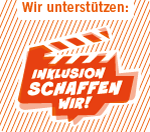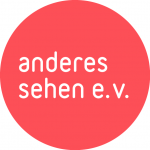Why Wait? A „freedom first“ approach to fostering self-determination in babies and young children with blindness visual impairment
Using an adaptation model of blindness based on brain plasticity, this webinar will explore the fundamental principles of self-determined freedom of movement and achievement. Practical strategies that foster natural development of brain processes will be shared. Specific focus will be given to perception-based cane training, a self-determined model of engagement and managing guides and supports, and audition/FlashSonar.
You are invited to the Zoom webinar.
When: Oct 29, 2020 – 16:30 German Time
Instructor: Daniel Kish
Instructor’s Title: President and Lead Instructor
Instructor’s Affiliation: World Access for the Blind
Register in advance for this webinar:
https://aph.zoom.us/webinar/register/WN_ZUy6BtP-QqCrRGCtP60EPQ
After registering, you will receive a confirmation email containing information about joining the webinar.
Lesson Plan Goal:
Participants will understand the developmental impact of perceptually directed mobility and how to foster it, including: taction and early cane training; self-determined engagement and management of guides and supports; and FlashSonar development.
Learning Objectives:
1. Participants will learn at least three perception-based principles that support activation of brain mechanisms, which foster self-determined freedom and achievement in young children and across the lifespan.
2. Participants will learn at least three concrete strategies for fostering development of the four major brain processes – perceiving, acting, thinking, and socializing.
There is a list of video materials to review before the first and second parts, but most of you already know or have seen the material. Still, some of it may be a nice refresher.
Pre-requisite knowledge:
Catalyst Australia, Apr 12, 2016: The blind man leading the blind to see
https://www.abc.net.au/catalyst/echolocation/11016442
Toddler Echolocation:
https://youtu.be/-2ULe-OQuSg
Toddler Perception Cane:
https://youtu.be/InMtUn6ff6A
Basic Activities:
https://www.youtube.com/watch?v=41jXX3bY0xM&feature=emb_logo
Take Charge:
https://youtu.be/kRa5egfRms0
Feature and Scene Analysis:
https://www.youtube.com/watch?v=CRWPmdw7Y44&feature=emb_logo
Distance Perception
https://vimeo.com/315131643
For those who cannot make it to either or both parts of this presentation, it will be uploaded to the APH Youtube Channel at:
https://www.youtube.com/playlist?list=PLUj6DcM1nN3ETBrf17n6IKIxSihSU-gx0
For your convenience, the presentation I gave in June is here: https://www.youtube.com/watch?v=RzmlIJTWN4w
APH’s new Learning Management System will allow people to log on, and instructors may receive professional development credits. It has launched and is called the APH Hive. Courses are slowly being built and then embedded into the APH Hive.
They tell me it will take some time for this two part series to get formulated into a course. Realistically, I’m told that this content might be ready as a course in the APH Hive come the January 2021 timeframe.
Here’s a link to the site: https://aphhive.org/#/home
Enjoy, and thanks.
Daniel







